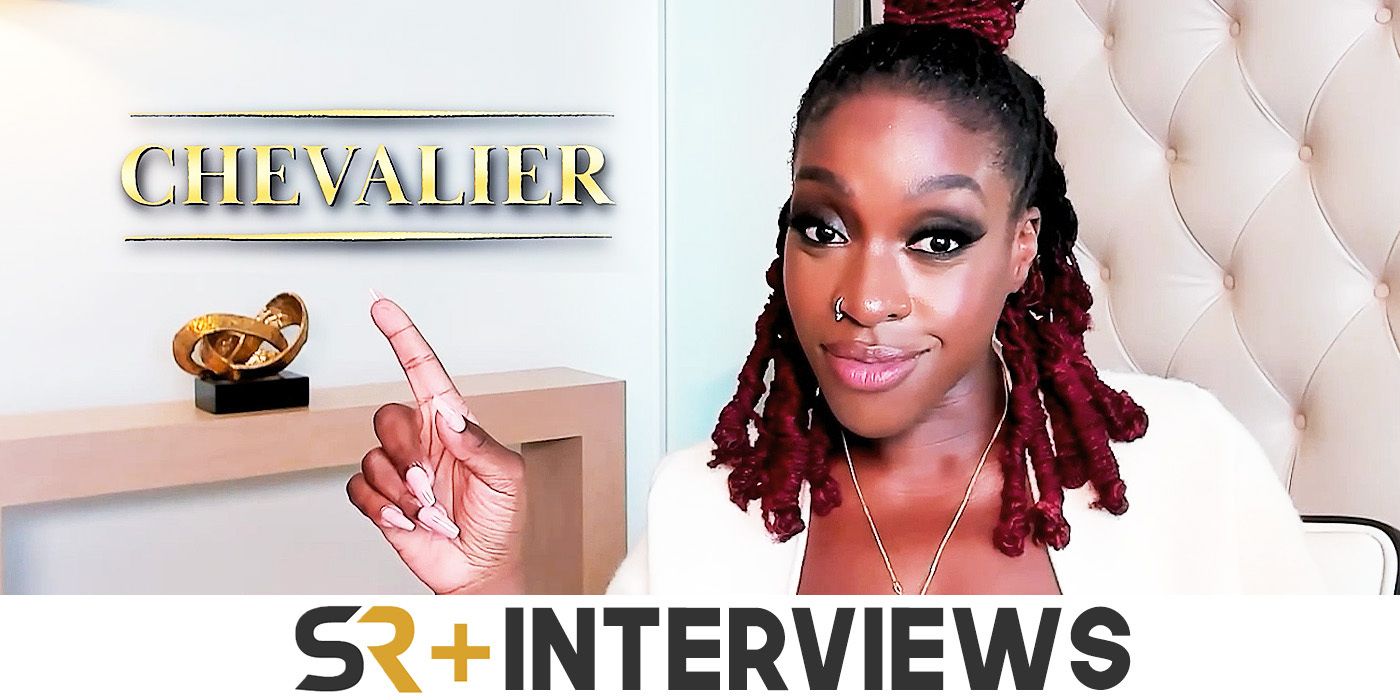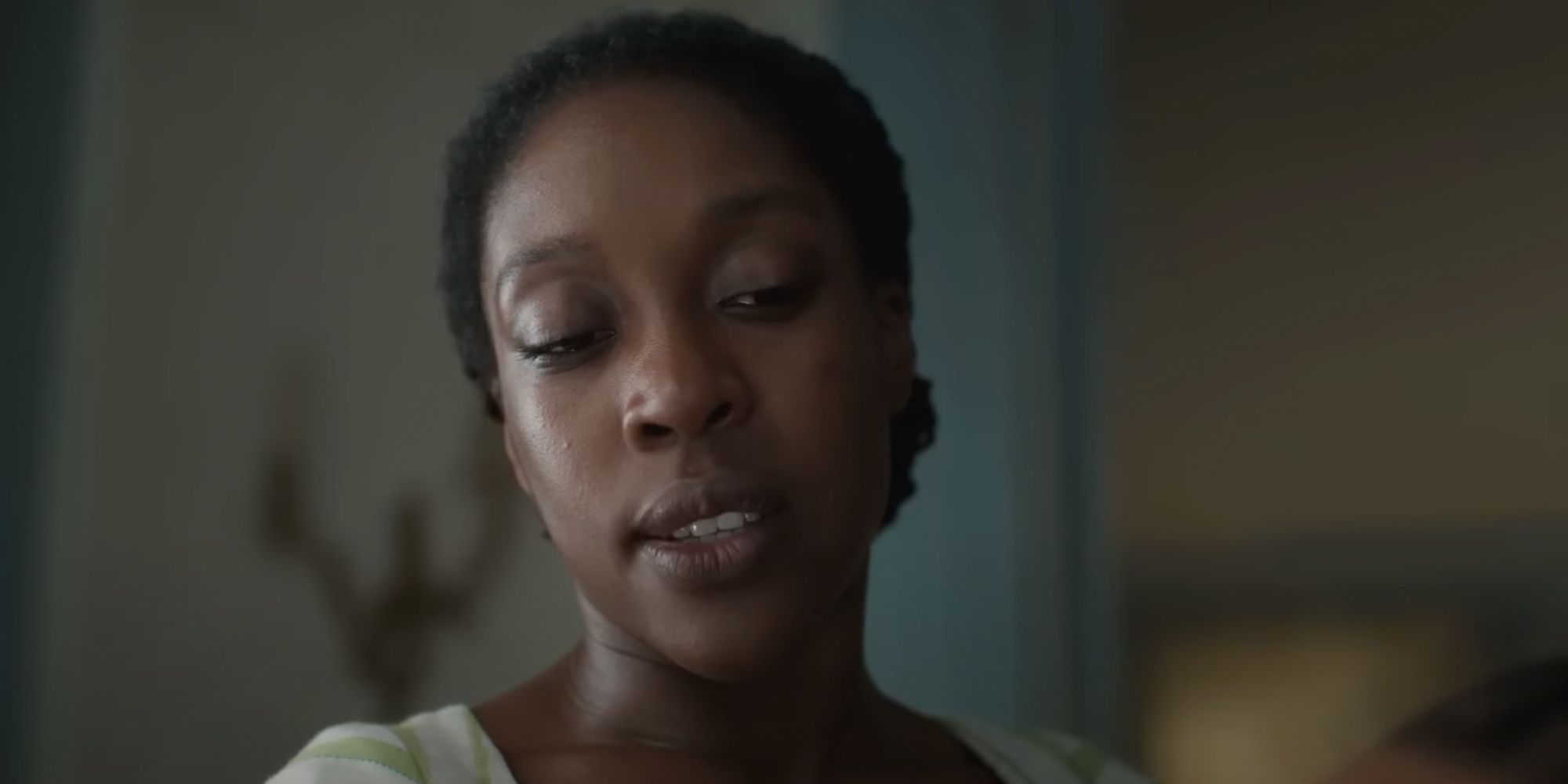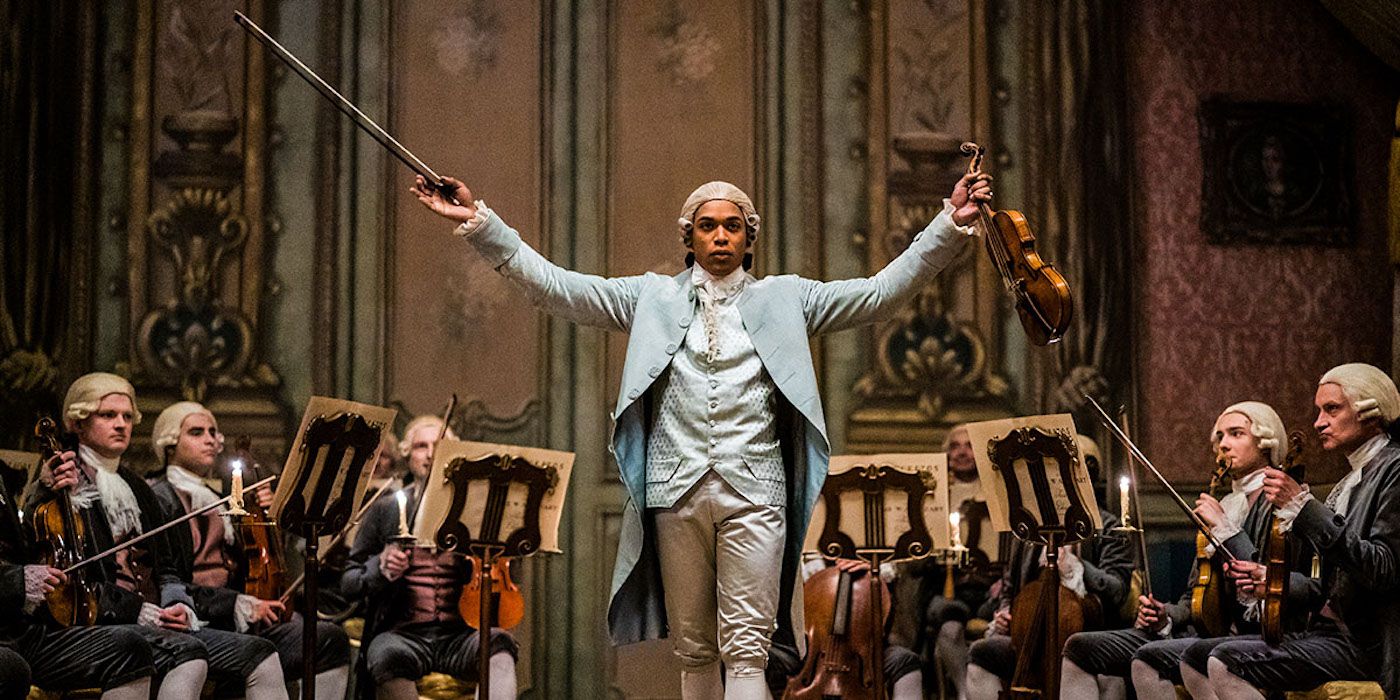The new Searchlight Pictures film Chevalier is re-introducing the world to one of the most prodigious composers and violinists of the 18th century. Joseph Bologne, Chevalier de Saint-Georges, was born to an enslaved Senegalese woman before being taken to France. He eventually rose to recognition in the court of Marie Antoinette as a musical master, an exceptional fencer, and a singularly talented violinist. Though much of his work was lost or destroyed during the reign of Napoleon Bonaparte, the surviving pieces by Joseph Bologne make evident that he was a worthy contemporary of the best-known composers of the time.
Bologne’s accomplishments are even more striking given his origins; his mother Nanon was not only enslaved but also only 16 years old when she gave birth. Nanon is brought to life in Chevalier thanks to the talents of Ronke Adekoluejo, a London-born actor who is known for her previous work on projects such as Doctor Who and Christopher Robin. Adekoluejo is notably only a few years older than her on-screen son Kelvin Harrison, Jr., but the pair’s dynamic on screen is compelling and entirely believable nonetheless.
Ronke Adekoluejo spoke with Screen Rant about acting alongside Kelvin Harrison, Jr. for Chevalier, finding inspiration for her performance in the musical biopic, and more.
Ronke Adekoluejo on Chevalier
Screen Rant: I've heard that most of the creative team did not know who Joseph Bologne was before they started the project. Were you in the same boat, and did you learn about him as this came up?
Ronke Adekoluejo: It was so strange because I was actually doing a TV show at the same time, and before the [Chevalier] script came, we were shooting in a BBC building or something like that. They had this office dedicated to musicians of that time, and Lenny Henry had actually scribed a book that was just on Joseph. I was in this room about to do my take and I saw this book, and I was like, "Oh, what is that?" and I opened it. Then, like three days later, the script came through. It's really weird. It's really weird.
I knew about him three days before the script came into my inbox. Can you imagine? I was reading this stuff and going, "Is this real? When did this happen?" Then, the script came, and I was like, 'Wow, I need to play that part." Luckily, they cast me.
And your character, this real person Nanon, clearly must have been incredibly strong to survive what she did before she got to Paris. What were the key traits of hers that you wanted to make sure came across in your performance?
Ronke Adekoluejo: I really wanted her strength to also be based in her vulnerability and her softness, and [that] her desire to see her son again is actually what has kept her alive. I feel like sometimes when things have been ripped from us and ripped from our bodies, it can leave a hole that is unfillable. I actually made up a secret; it's not in the script or anything, but for me in terms of the character of Nanon, [and] for her to see her son, I feel like she made a choice at that time to get rid of his father so that she could [see her son]. There were so many opportunities that she definitely tried, and I feel like what's important for Nanon to share, and what people might receive is that for her son, and ultimately for herself, she would stop at nothing.
Most of what we know about her is through the context of her son; in reading about him, you learn about her. Did that make it harder for you to find a way in and get a sense of who she was as a person?
Ronke Adekoluejo: Yea and nay, I'd say. There were a lot of women in the 1800s that were doing things that were often attributed to what [was] masculine, [such as] Yaa Asantewaa, who led the British resistance for the Golden Stool in Ghana. Around these times, all these women were doing these incredibly, incredibly powerful things, [such as] Queen Nanny who led the Maroons in Jamaica. We don't often elevate, or celebrate, or know about these women that turn around and say, "Actually, I'm not having this. I'm not going to have an invasion of my body, of my place, of my people. I'm not going to allow the idea that I'm not autonomous."
I went deep into that research and tried to find those women; I had pictures of those women up in my apartment when I was creating my character. [Part of it was] understanding that there is a desire to quit because it might be easier, but then there's something else that's born in these women that go, "No, we are not quitters. We don't quit." There's a scene where my character says, "You always have a choice. And you choose to fight." And she's like, "No, no, I'm going to fight." I think that's what she really wants to instill in Joseph, that it's not over. It can never be over.
Did you feel like because you were trying to speak to all of these other women and their experiences, that added pressure for you in this role in some way?
Ronke Adekoluejo: I think it more so inspired me. And also, [it's not] that I was trying to speak for them, because I don't think I can. I allowed them to speak for me in the sense that it's 2023 and I get the opportunity to bring Nanon to life, because she's still fighting. She couldn't die, and all the women that I researched, and that I now know about, and [have] allowed to influence who I am, have not died. It's like, "Wow, there is real resistance, and that power is so empowering." So, in fact, it wasn't kind of scary. It was more like, "Okay, yeah, use me. I'm here to be of service. Use me." Which also sounds a bit scary.
There's a scene early on that really got me, where you start speaking, and the Chevalier is like, "French is the preferred language." It feels like that one moment speaks to their relationship so much. How would you define the relationship between Nanon and her son once she was in Paris?
Ronke Adekoluejo: It's interesting. I feel like she doesn't disregard his experience, in the sense that he didn't have to go through the enslavement that she had and how the pain of that molded her into who she was, but [instead] she's aware that there is stuff going on here for [him] as well. Also, there's been so much time that they've been separated. It is presumptuous to come in and just assume that you could be back in a relationship instantly, because "I am your Mother; you are my child." In those moments I feel like yes, it's painful for Nanon, but she's actually very aware that this is what must happen in order for them to explore the real comfort and love and the pure relationship they have to have.
It's also interesting about your language being removed from your tongue. I am British-born - well, London-born, it's a world in and of itself - but my parents are Nigerian Yoruba, and they're Lagos-born. I understand the mother tongue entirely, [and] I can flex some words, but I can't let it flow. There's been this resistance when you go, "Where are you actually from?" Am I Nigerian? Am I British? Is Joseph French, or is he Guadeloupean? Is Nanon Guadeloupean, or is she Senegalese? [There are] all of these ideas that we are from everywhere and nowhere.
Also, understanding displacement can create a real fracture in who we are as people, and I feel like Nanon is very aware of this for her son. She gives them grace, she [doesn't] tell him to shut up rather than talking, but it's all of that that you have to think about. That's why it's so painful in that moment, that that's the choice he decides to make, in the sense that "We don't talk like that around here," and she's like, "Okay, yeah."
And I don't think you and Kelvin are terribly far apart in age. How was playing his mom?
Ronke Adekoluejo: He's such an incredible actor that it's so easy to find ways to have unspoken connections in the sense that a mother and son would have. But definitely when we did the read-through, which was on Zoom a few years ago, and we all popped up, everyone was [skeptical]. [I was] just going, "Oh, how are we going to do this?"
I even remember, I created this really extensive character book that I brought into my meeting with Stephen, because I wanted him to know how much work I had done. My ego was like, "You have to show this man. He cannot fire you. Please." I was talking throguh all of this and Stephen was like, "You've got this. It's fine. I know you've got this; it's fine." I was like, "You don't want to see my pictures? You don't want to see all of the wig work I've been doing?" Stephen was like, "No." I was like, "Okay."
So, it was weird when we just got onto set; it just relaxed. That's one thing I have to praise Stephen Williams for massively, was that he trusted us. They trusted me as a storyteller, and it just allowed me to relax and allow Nanon to be alive as opposed to Ronke trying to prove a point, [like] "I'm an actor, I can act well!"
Which day on set sticks with you the most?
Ronke Adekoluejo: My 30th birthday was my first day of shooting on-set, and the first scene was when we're reunited. Me and Kelvin had spoken, but we'd never actually met before. We did this really emotional scene, and Stephen came over and said it was great, and then I turned around and everyone sang "Happy Birthday" to me. I was like, "Oh, this is awkward. I don't know any of you," so I'm just there, like, "Thanks, guys."
There's that meme of Viola Davis; that's what you do when people sing "Happy Birthday" to you. I remember that a lot, but it also set up the set up the beginning of such a beautiful shooting period that I just cherish. I would go back in a heartbeat. It was such a wonderful, wonderful time. Everyone's so amazing. I loved it.
About Chevalier
Inspired by the incredible story of composer Joseph Bologne, Chevalier de Saint-Georges. The illegitimate son of an African slave and a French plantation owner, Bologne (Kelvin Harrison Jr. in a tour de force performance) rises to improbable heights in French society as a celebrated violinist-composer and fencer, complete with an ill-fated love affair and a falling out with Marie Antoinette (Lucy Boynton) and her court.
Check out our other Chevalier interviews here:
- Kelvin Harrison Jr. (Chevalier)
- Samara Weaving (Marie-Josephine)
- Stefani Robinson (Writer)
- Stephen Williams (Director)
Chevalier is now playing in theaters.



